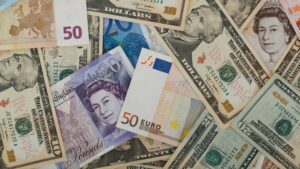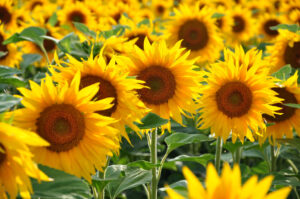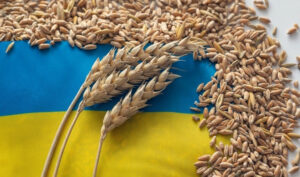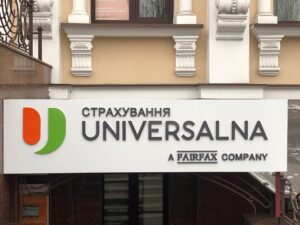
The National Bank reduced the sale of foreign currency on the interbank market last week by $221.77 million, or 41.4% – to $314.4 million, according to the regulator’s statistics on its website.
According to it, the National Bank even bought $10 million on the market last week, the last time it was in early March, while in general, since the beginning of the year, the purchase amounted to $33.5 million against $10.24 billion of sales.
Thus, net foreign exchange interventions of the NBU over the past week fell by 43.2% to $304.4m.
The data, which the regulator has managed to make public during this time, indicate a change in the situation on the cash market of currency: for the first time since the beginning of the year, the sale of currency exceeded the purchase. From $19.7 million on Monday, the net balance of sales decreased to $8.3 million on Tuesday, $1.2 million on Wednesday and $3.0 million on Thursday.
The official hryvnia/$1 exchange rate was volatile last week: from 41.3879 UAH/$1 on Monday, it strengthened to 41.1753 UAH/$1 on Wednesday before weakening again to 41.3955 UAH/$1 at the end of the week.
On the cash market, the hryvnia depreciated by 10-14 kopecks over the week as the margin widened: the buying rate went to UAH 40.95/$1, while the selling rate went to UAH 41.10/$1.
As analysts of KYT Group note, in early April the currency market of Ukraine continued to demonstrate relative stability in the dollar segment and noticeable strengthening of the euro: the dollar rate is declining under the influence of external weakness of the U.S. dollar, while the euro rate is growing both due to the global trend and structural demand for the Euro currency in Ukraine.
“In general, the Ukrainian currency market is characterized by growing liquidity, narrowing spreads and decreasing volatility against the dollar, which is evidence of the formation of relative predictability of further exchange rate trajectories,” KYT Group believes.
They noted that in the domestic market, the rates of purchase and sale have come close to the official rate of the NBU: market rates of both purchase and sale of the dollar began to move almost synchronously with the official, without significant deviations and equidistant from the official – +\- 25 kopecks, which reduces market volatility.
“In the short term (2-4 weeks), the dollar exchange rate is likely to move smoothly in the range of 41.10-41.80 UAH/$ with possible adjustments within 20-30 kopecks, associated with situational demand”, – predicted in KYT Group.
In their opinion, the medium-term perspective (2-4 months) provides for the possibility of returning to the range of 41.80-42.50 UAH/$ in case of inflation growth, import activity or pressure on the budget.

Germany topped the list of leading beer exporters to China in the first quarter of this year (by $23.258 million), according to the State Customs Administration (SCA) of the PRC.
It was followed by the Netherlands (by $11.799 million), Belgium (by $11.239 million), and Spain (by $10.028 million). Among Asian countries, Japan supplied the most beer to China – by $5.276 million.
In total, in January-March 2025, China imported beer from 52 countries and exported it to 89.

“Kernel, one of the largest Ukrainian agro-industrial groups, processed 845 thsd tonnes of oilseeds in the third quarter (January-March) of the financial year (FY) 2024/25, up 3% y-o-y, but down 9% q-o-q, according to the agroholding’s report.
According to the report, in January-March 2025, Kernel processed 694 thousand tons of sunflower seeds and, due to the lack of raw materials in the domestic market of Ukraine, also processed 151 thousand tons of soybeans at three plants. In addition, the agroholding processed 50 thou tons of sunflower seeds under tolling agreements with third parties.
As a result of processing of both sunflower seeds and soybeans in the third quarter of 2024/25, the agricultural holding’s edible oil sales fell by 9% year-on-year to 347 thsd tonnes. At the same time, sales of edible oil in the first nine months of FY2025 amounted to 1 mln tons, which is 6% less than in the same period last year.
The report also notes that grain supplies to the agricultural holding’s elevators decreased by 2% to 2.7 million tons in the first nine months of FY2025.
“In the third quarter of FY 2024/25, Kernel reduced grain exports by 15% to 1.6 mln tonnes compared to the same period last year, which it explained by the decline in the harvest in Ukraine. In total, Kernel exported 4.4 mln tons of grains and oilseeds in the first nine months of the year, accounting for 12% of the national exports.
Transshipment through the agricultural holding’s export terminals reached 2.5 million tons in the third quarter, up 2% year-on-year. This volume included 1.8 mln tons of grains, 0.3 mln tons of edible oil, and the rest was made up of oilseeds.
In total, for the first nine months, the transshipment volume amounted to 7.3 mln tons, up 65% year-on-year, due to the low comparison base in FY 2024/25 due to the closure of the Black Sea ports at the beginning of the season, the agricultural holding summarized.
Kernel is the world’s largest exporter of sunflower oil, one of the largest producers and sellers of bottled oil in Ukraine. In addition, it is engaged in the cultivation and sale of agricultural products.
In the first nine months of 2024, the agricultural holding reduced its net profit by 53% to $204 million, while its revenue decreased by 4% to $2.595 billion, and its EBITDA decreased by 36% to $384 million.

Ukraine has exported 34.451 mln tonnes of grains and pulses since the beginning of the 2024-2025 marketing year (July-June), of which 1.627 mln tonnes have been shipped since the beginning of the month, the press service of the Ministry of Agrarian Policy and Food reported, citing the State Customs Service.
According to the report, as of April 25 last year, the total shipments amounted to 40.289 million tons.
At the same time, since the beginning of the current season, Ukraine has exported 13.623 mln tonnes of wheat (15.404 mln tonnes in 2023/24 MY), 2.247 mln tonnes of barley (2.178 mln tonnes), 10.8 thsd tonnes of rye (1.2 thsd tonnes), and 18.067 mln tonnes of corn (22.231 mln tonnes).
The total export of Ukrainian flour since the beginning of the season as of April 21 is estimated at 57 thsd tonnes (in 2023/24 MY – 85.7 thsd tonnes), including wheat – 52.9 thsd tonnes (81 thsd tonnes).

The Ministry of Defense of Ukraine has received another delivery of equipment from the IT Coalition, funded by Luxembourg and Iceland, worth about EUR 2 million, the Defense Ministry’s press service reports.
“I am grateful to the countries of the IT Coalition for strengthening the technological resilience of our army. With this equipment, we will increase the capacity for high-quality and reliable communication in the Armed Forces of Ukraine, which is very important on the front line,” said Kateryna Chernogorenko, Deputy Minister of Defense of Ukraine for Digitalization.
It is reported that the partners handed over 3,288 access points of various models; 500 routers; 460 charging stations with solar panels; 872 phones to the Ministry of Defense.
As reported, this is the third delivery from the IT coalition in 2025. In January of this year, Estonia, the Netherlands and Luxembourg transferred equipment worth EUR 3.3 million to Ukraine as part of the initiative, and in February – for EUR 7.5 million.
The IT Coalition is one of the capability coalitions within the framework of the Contact Group on Defense of Ukraine (Ramstein format). It supports the Armed Forces of Ukraine and the Ministry of Defense in the areas of IT, communications and cybersecurity. Currently, the coalition includes Belgium, Canada, Denmark, Finland, Iceland, Ireland, Italy, Japan, Latvia, Lithuania, the Netherlands, Germany, Spain, Sweden, the United Kingdom and the United States. The coalition is led by Estonia and Luxembourg.

In January-March 2025, Universalna Insurance Company (Kyiv) made insurance payments in the amount of UAH 273.8 million, which is 28% more than in the same period a year earlier, according to the insurer’s website.
It is noted that payments on voluntary health insurance increased by 18% to UAH 121.7 million, hull insurance – by 50% to UAH 101.4 million, MTPL amounted to UAH 18.4 million, accident insurance – UAH 12.2 million, property – UAH 11 million.
Payouts on other insurance products amounted to UAH 9.1 million.
Universalna Insurance Company was founded in 1991. It specializes in providing risk insurance services. According to the National Bank of Ukraine, it is among the top ten risk insurance companies in terms of insurance premiums collected in the first nine months of 2024.
The main shareholder of the company is Fairfax Financial Holdings Limited (Canada).